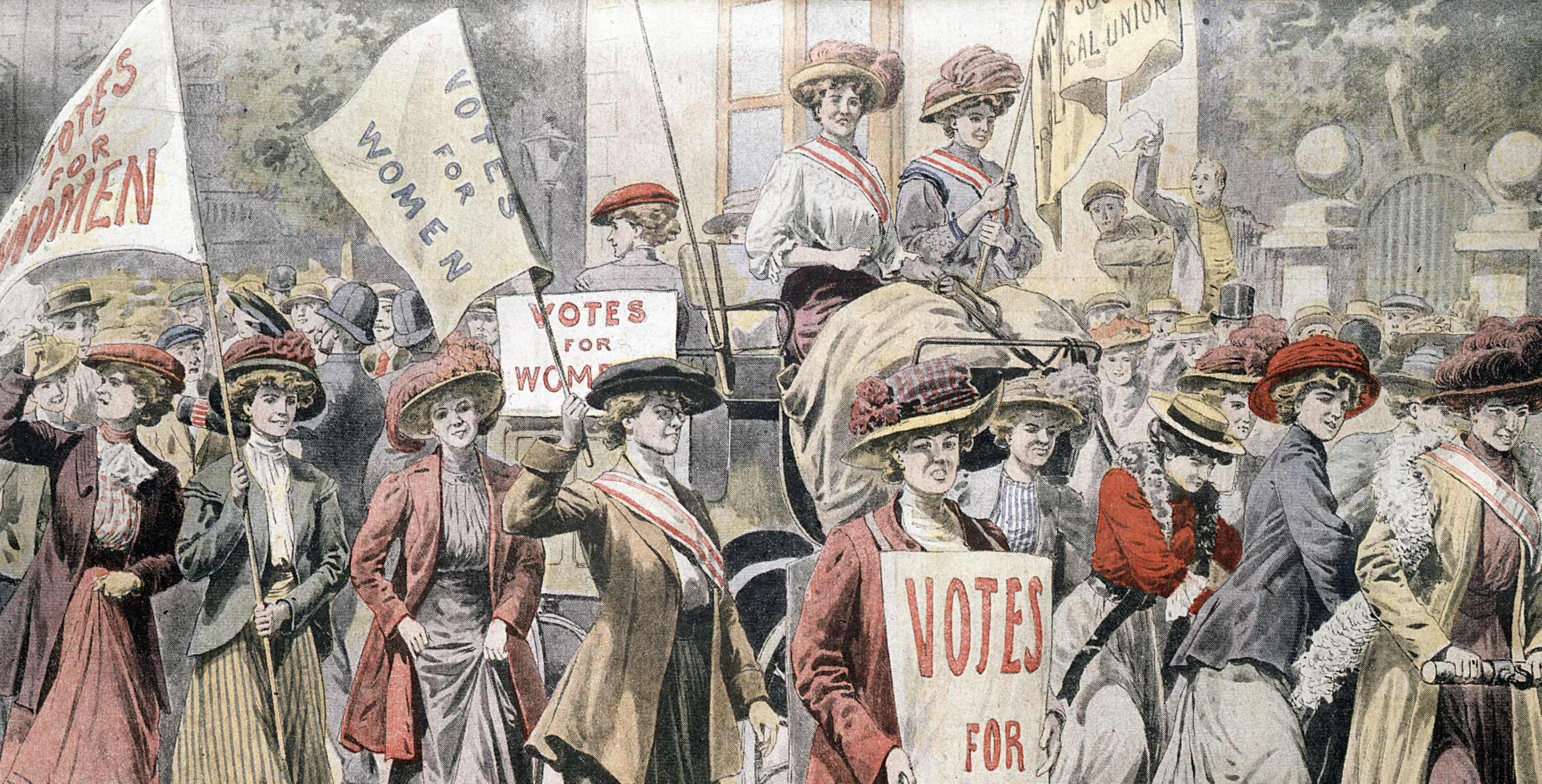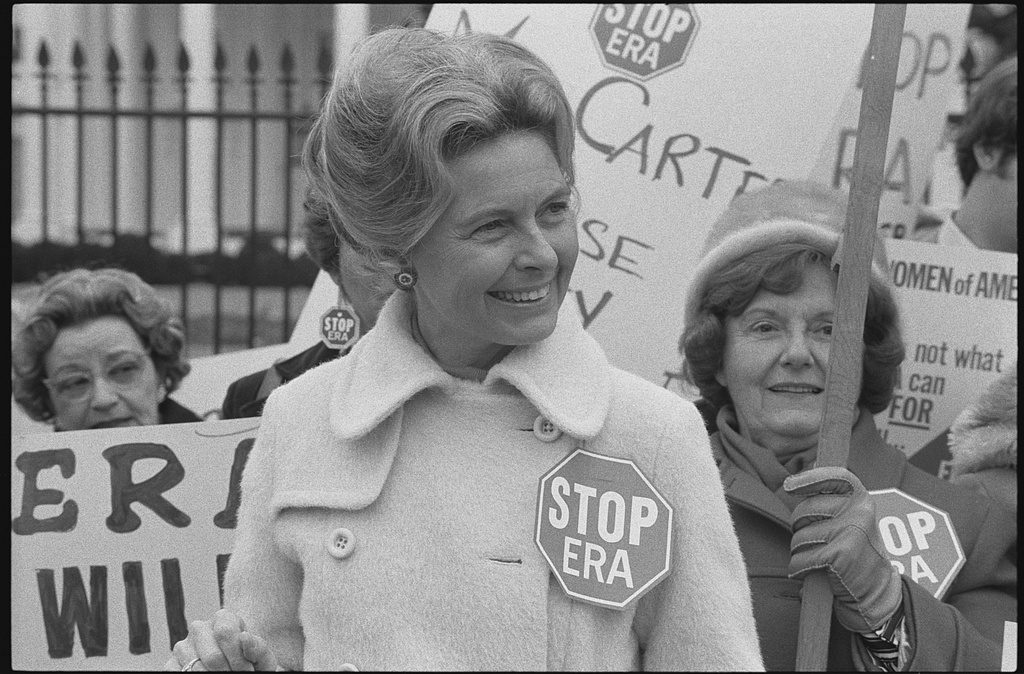“The right of citizens of the United States to vote shall not be denied or abridged by the United States or by any State on account of sex. . . . Congress shall have power to enforce this article by appropriate legislation.”
-Amendment XIX, Constitution of the United States of America
Exactly 100 years ago today, on Aug. 18, 1920, America took a leap toward realizing its exceptional ideals when the Tennessee House of Representatives was the 36th state to vote to ratify the 19th Amendment to the U.S. Constitution, granting women the right to vote.
The fight for women’s suffrage—for the imago Dei to be recognized and affirmed in half the population of the country founded on the principles of a democratic republic and popular sovereignty—was not a linear one. It took centuries of hard-fought cultural and political battles to achieve.
The long road to Aug. 18, 1920
In 1776, when the Declaration of Independence was signed and the source of our natural rights was declared to come from our Creator, a radical shift occurred in human history. A government was created and founded upon the inherent dignity and equality of all human beings.
Or at least that’s what the preamble famously proclaims.
Yet, in reality, we know that the majority of people living in the colonies were not actually included in this language. Women, the poor, Native Americans, and African Americans were all excluded from this experiment of self-governance because they were all denied the right to vote.
A simplistic version of American history would make it easy to believe that the fight for women’s suffrage would not begin until after President Jackson expanded the right to vote to poorer white males and the Civil War and Reconstruction expanded the right to vote to African American males. Then, everyone decided it was time to fight for women to have the right to vote.
But the story is much more complex, and more like a Texas two-step, with one step forward, two steps back. Women did have the right to vote in some colonies until state constitutions were adopted after 1776 that denied voting rights to women. The battle for suffrage was an often bitter and heartbreaking one on the long road to Aug. 18, 1920.
The deciding vote in Tennessee
It all culminated in downtown Nashville a couple of blocks from where the offices of the ERLC sit today. After decades of women and men fighting for women to have the right to vote, it all came down to a vote at the Tennessee State Legislature, where the House of Representatives was deadlocked. Hope seemed lost.
Suffragettes wore yellow roses, and their opponents wore red roses. The Hermitage Hotel, a few blocks from the Capitol, was the epicenter of out-of-town activists. Rumors still swirl today, a century later, about backroom deals and bribes. And the fate of every woman in America rested in the hands of 99 men.
The deciding vote was a 24-year-old representative from McMinn County, Tennessee, named Harry Burn. Originally planning on supporting the amendment, he began to vote against motions to bring it to a vote when he received misleading telegrams pressuring him to vote against it due to opposition by his constituents. However, a letter from his mother, Febb Burn, ultimately changed his mind, and the course of history:
“Dear Son, . . . Hurrah and vote for Suffrage and don’t keep them in doubt. I noticed Chandlers’ speech, it was very bitter. I’ve been waiting to see how you stood but have not seen anything yet. . . . Don’t forget to be a good boy and help Mrs. ‘Thomas Catt’ [National American Woman Suffrage Association president] with her ‘Rats.’ Is she the one that put rat in ratification, Ha! No more from mama this time. With lots of love, Mama.”
On this the 100th anniversary of the 19th Amendment, may we pray for the eyes to see the mission field the Lord has placed us in, the humility to submit ourselves to his wisdom in navigating the precarious waters of contemporary culture and politics, and the courage to don our own proverbial yellow roses to fight for justice and equality for our fellow image-bearers.
And so Harry Burn changed his vote. The Tennessee House of Representatives passed the ratification of the 19th Amendment by a vote of 50-49. Tennessee became the 36th state to ratify it, satisfying the constitutional requirement for ratification and giving women the right to vote.
It’s tempting to believe history changed in that moment with that one mother-son relationship. But the fight for suffrage had begun centuries earlier. Generations of women had fought and seemingly failed in their lifetimes. But God was using their advocacy to plant seeds that would be harvested years later.
Learning from Febb Burn
In 2020, our nation continues to grapple with our past and how it will affect our future. But like the yellow-rose clad suffragettes, we must remember it’s the small, faithful action of many that bend the arc of history toward justice. We can learn something from Febb Burn, who realized her relationship with her son allowed her the opportunity to make a difference, to be persuasive, and to speak truth to those in power.
As Christians, we are called to faithful lives marked by acting justly, seeking mercy, and walking humbly (Micah 6:8). As representatives of Jesus, we are required to advocate for what’s right and to do so in the right ways.
On this the 100th anniversary of the 19th Amendment, may we pray for the eyes to see the mission field the Lord has placed us in, the humility to submit ourselves to his wisdom in navigating the precarious waters of contemporary culture and politics, and the courage to don our own proverbial yellow roses to fight for justice and equality for our fellow image-bearers.










